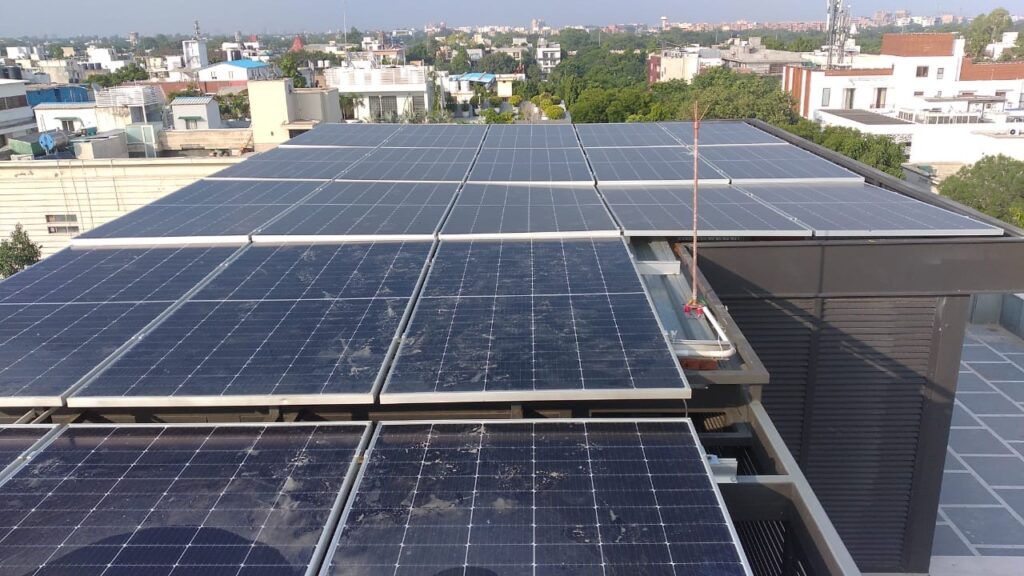"Unlock Huge Savings: Switch to Solar Now
In today’s world, finding ways to reduce expenses while contributing positively to the environment is a top priority for many households and businesses. One of the most effective solutions is embracing solar energy. By harnessing the power of the sun, you can significantly cut down on electricity costs and achieve long-term financial savings.
Introduction
Solar energy is derived from the sun’s radiation, which is converted into electricity or heat. It is a renewable and sustainable resource, making it an attractive option for those looking to reduce their carbon footprint. With advancements in technology and a growing emphasis on clean energy, that has become more accessible and affordable than ever before.
The global shift towards renewable energy sources has led to increased adoption of solar panels in both residential and commercial sectors. This transition not only helps in reducing greenhouse gas emissions but also provides substantial financial benefits.
How Solar Energy Saves You Money
1. Reduced Electricity Bills: One of the most immediate benefits of installing solar panels is the significant reduction in electricity bills. By generating your own electricity, you rely less on the grid, which translates to lower monthly utility costs. In many cases, solar energy systems can produce enough power to cover the majority of your electricity needs, leading to even greater savings.
2. Tax Incentives and Rebates: Governments around the world offer various incentives to encourage the adoption of solar energy. These include tax credits, rebates, and grants that can offset the initial cost of installation. For instance, in the United States, the federal Investment Tax Credit (ITC) allows homeowners to deduct a substantial percentage of the installation costs from their federal taxes.
3. Net Metering: Net metering is a policy that allows solar panel owners to sell excess electricity back to the grid. When your solar system produces more electricity than you need, the surplus energy is sent to the utility company, and you receive credits on your electricity bill. This ensures that no energy goes to waste and further reduces your overall costs.
4. Increased Property Value: Homes equipped with solar energy systems typically have higher property values. Prospective buyers are often willing to pay a premium for properties with lower utility costs and a smaller environmental footprint. This makes solar panels a wise investment not only for immediate savings but also for long-term financial gains.
Choosing the Right Solar Manufacturers
Selecting the right solar manufacturers is crucial to ensuring the efficiency and longevity of your solar energy system. Here are some key factors to consider:
1. Reputation and Experience: Look for manufacturers with a proven track record and positive reviews from customers. Established companies with years of experience are more likely to provide reliable products and support.
2. Quality of Products: High-quality solar panels and components are essential for maximizing energy production and durability. Research the specifications and performance ratings of different products to make an informed decision.
3. Warranty and Support: A good warranty is a sign of confidence in the product’s quality. Reputable solar manufacturers typically offer warranties that cover both the panels and the inverter. Additionally, ensure that the manufacturer provides robust customer support in case you encounter any issues.
4. Innovation and Efficiency: The solar industry is constantly evolving, with new technologies improving the efficiency and performance of solar panels. Choose manufacturers that are at the forefront of innovation, offering the latest advancements in solar technology.
Steps to Transition to Solar Energy
Making the switch to solar energy involves several steps. Here’s a guide to help you through the process:
1. Evaluate Your Energy Needs: Start by assessing your current electricity usage and future energy requirements. This will help you determine the size and capacity of the solar system you need.
2. Site Assessment: Conduct a site assessment to evaluate the suitability of your property for solar panel installation. Factors such as roof orientation, shading, and available space will impact the efficiency of the system.
3. Obtain Quotes: Contact multiple solar manufacturers and installation companies to get quotes. Compare the costs, services, and warranties offered by different providers to find the best deal.
4. Financing Options: Explore various financing options to fund your solar energy system. These can include solar loans, leases, and power purchase agreements (PPAs). Choose a financing plan that aligns with your budget and financial goals.
5. Installation: Once you’ve selected a provider and financing option, schedule the installation. Professional installers will set up the solar panels, inverters, and other necessary components, ensuring that the system operates efficiently.
6. Inspection and Activation: After installation, the system will undergo a final inspection to ensure it meets all safety and performance standards. Once approved, your solar energy system will be activated, and you can start enjoying the benefits of clean, renewable energy.
Conclusion
Embracing solar energy is a smart and sustainable way to achieve substantial savings on your electricity bills. By investing in high-quality solar panels from reputable manufacturers, you can ensure the efficiency and longevity of your system. The combination of reduced utility costs, tax incentives, net metering, and increased property value makes solar power an attractive option for homeowners and businesses alike.
Now is the perfect time to make the switch to solar energy. With the right planning and support from experienced solar manufacturers, you can unlock significant savings and contribute to a greener, more sustainable future. Don’t wait—start your journey towards energy independence and financial savings with solar energy today!


